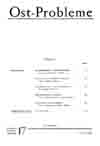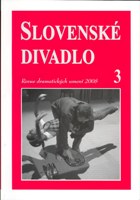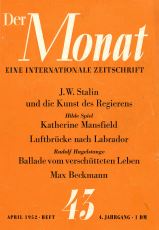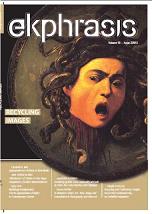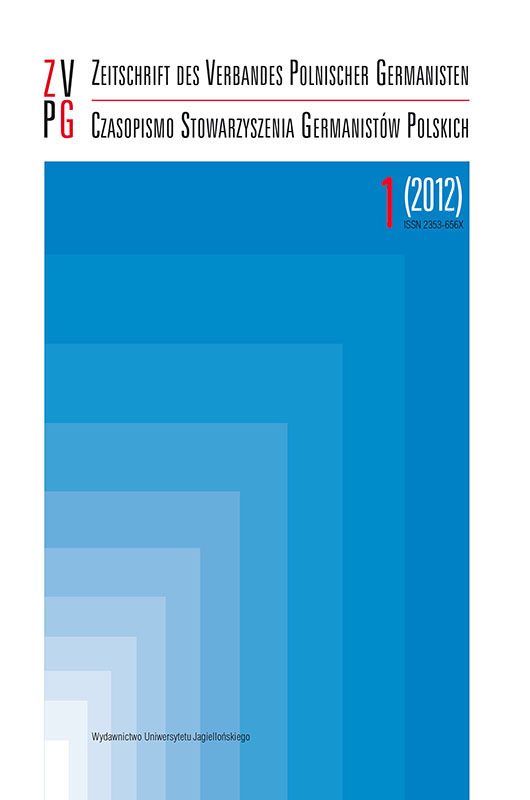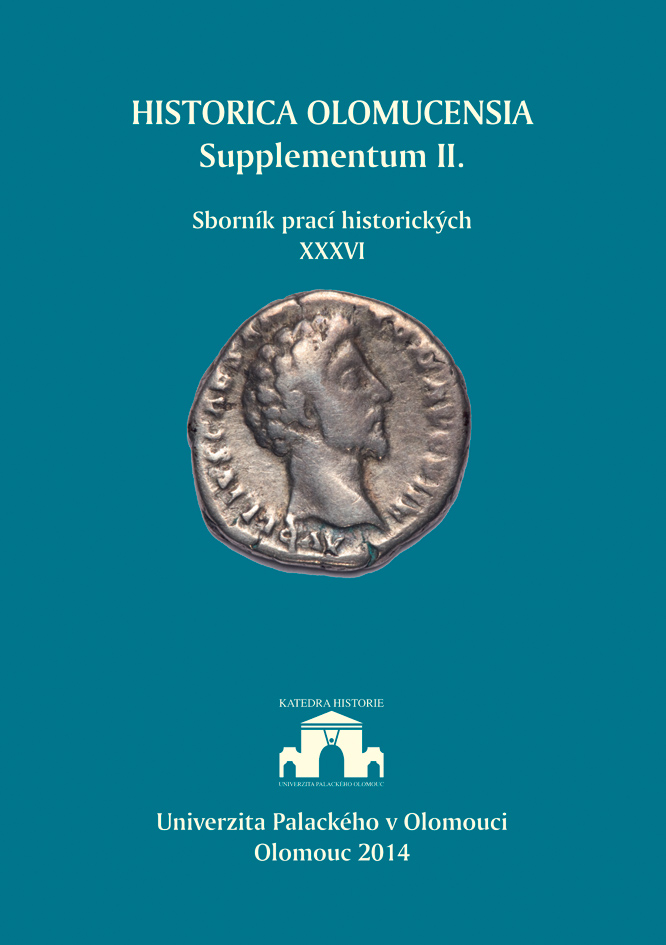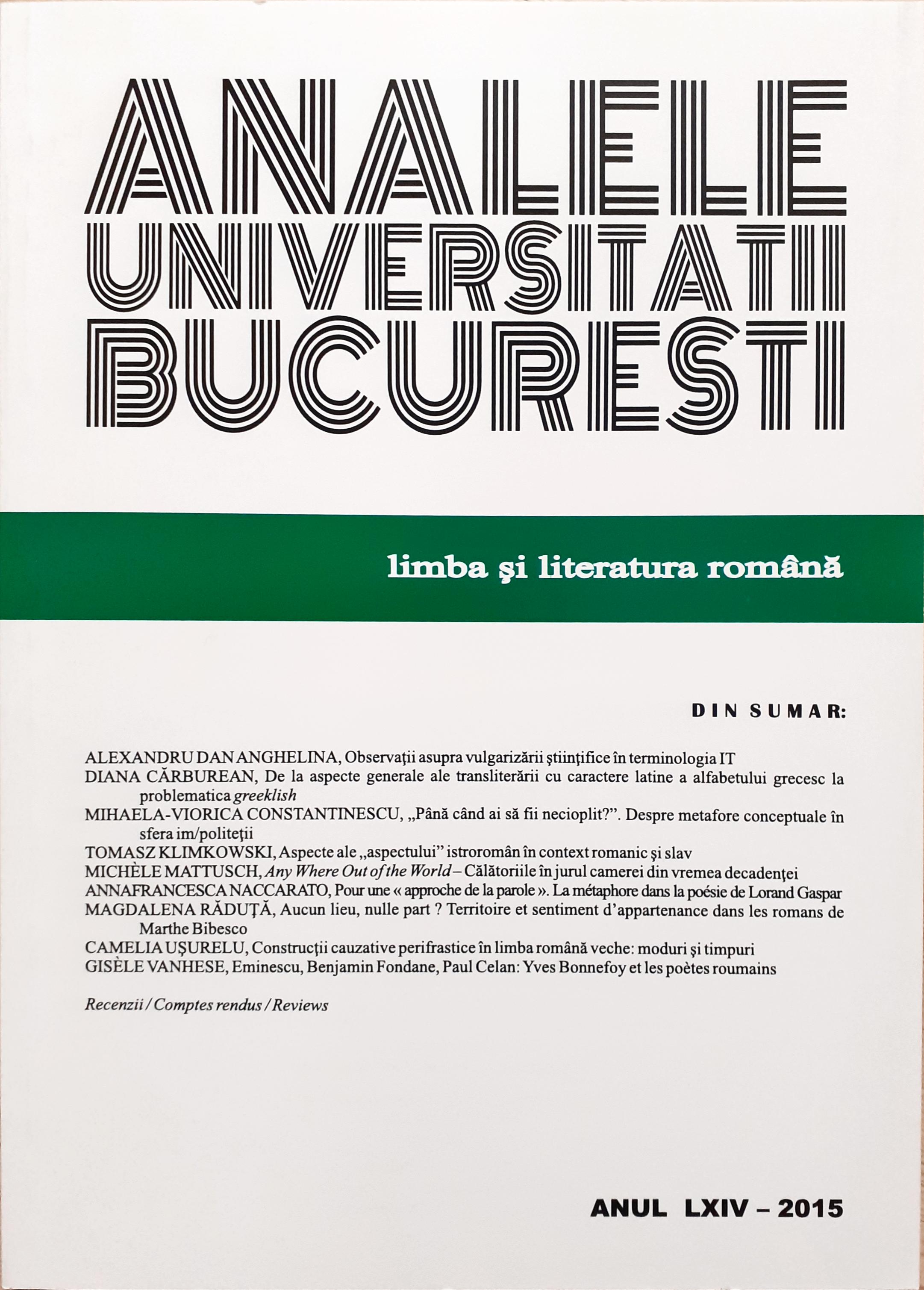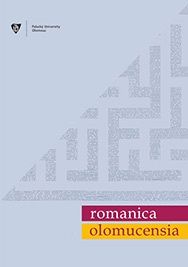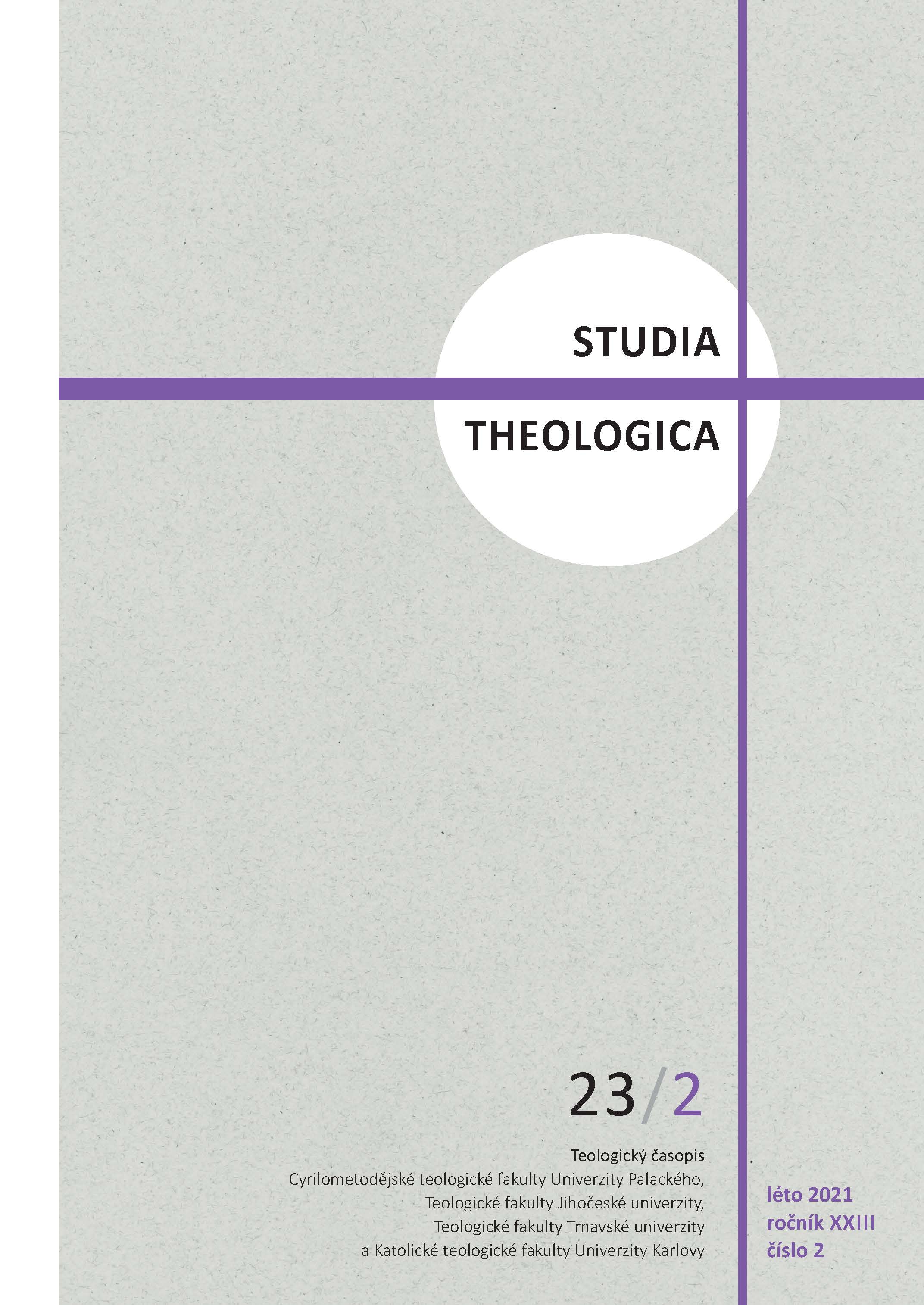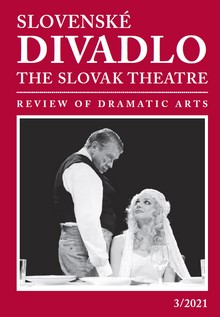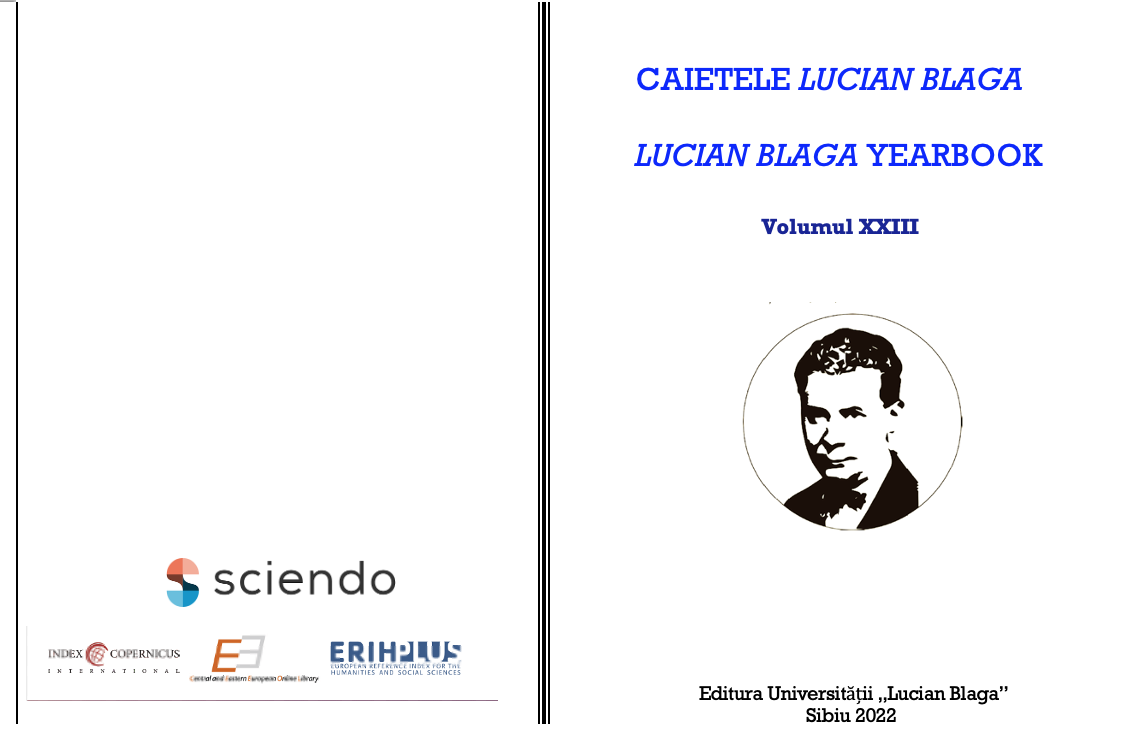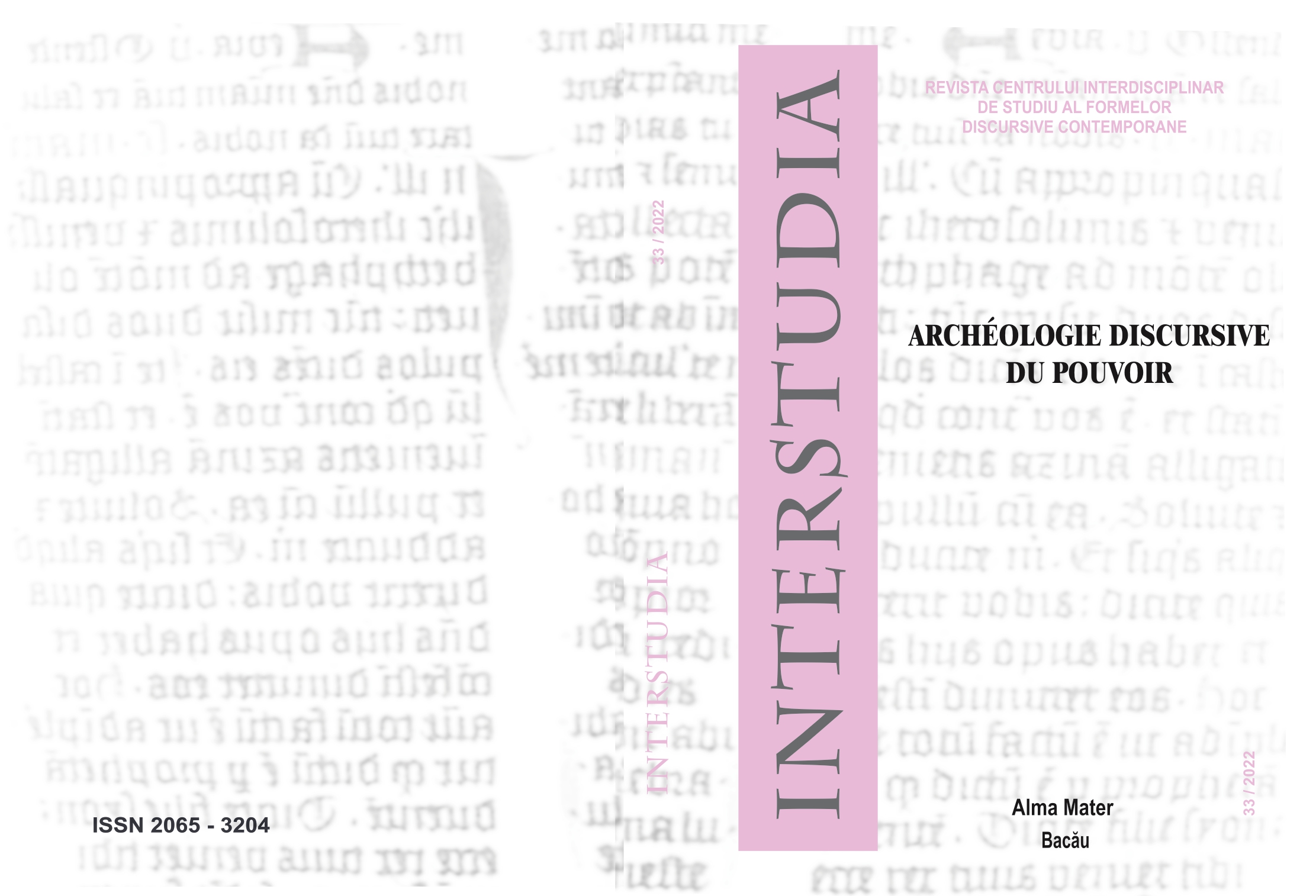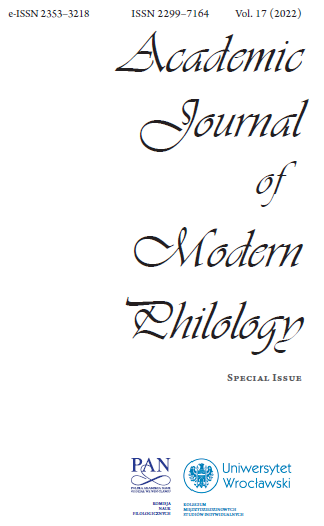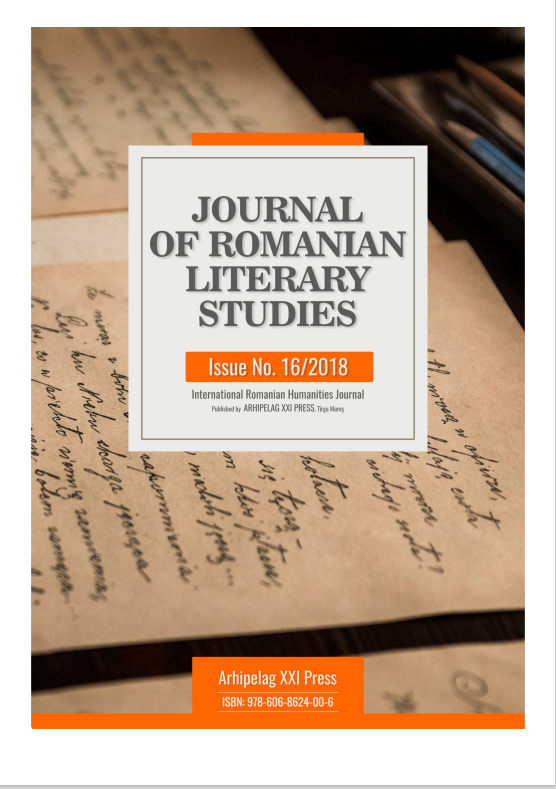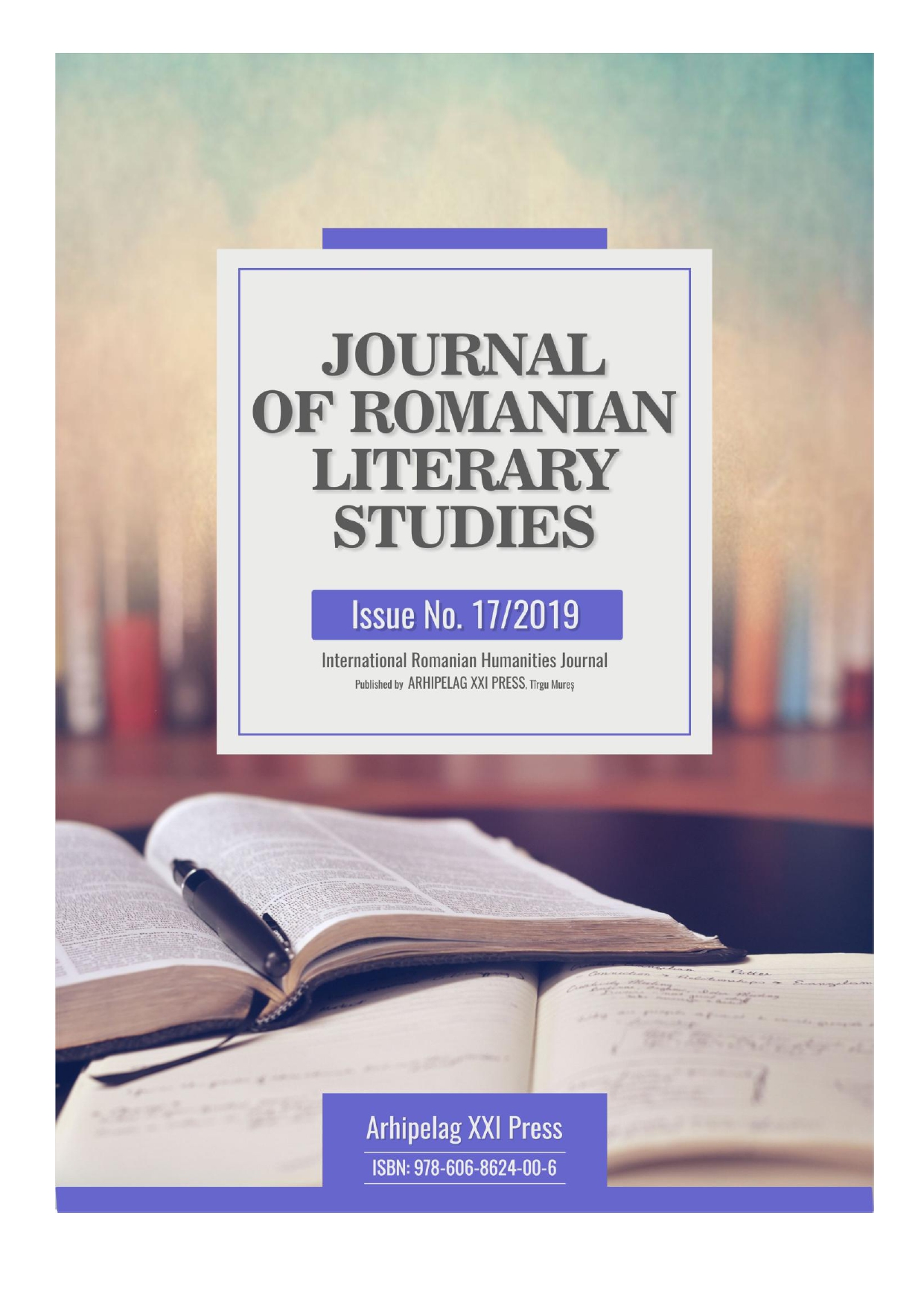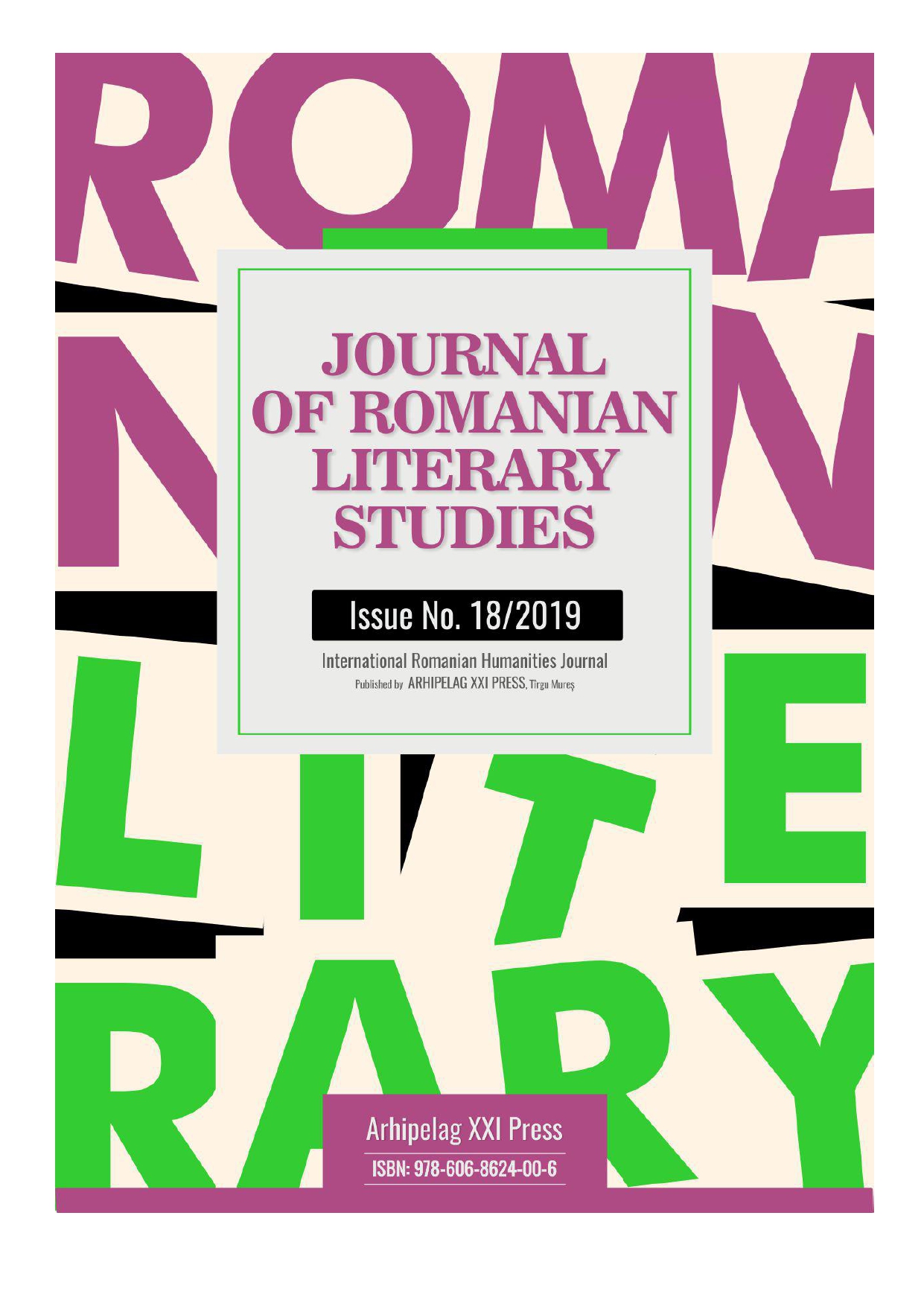LETIȚIA BRANEA. A PROTAGONIST OF A NARRATIVE TRIPTYCH
Author(s): Florina Georgiana Olaru / Language(s): Romanian
/ Issue: 16/2019
Keywords: self; inner dimension; emblematic character;
The present paper follows the itinerary of the main character Letiția Branea in the narrative triptych Drumul egal al fiecărei zile, Provizorat and Fontana di Trevi. Moreover, this article intends to bring into the foreground the idea that these three novels have their roots in the inner dynamic of the protagonist Letiția Branea. Thus, in the first part, we have tried to portray the figure of the young Letiția Branea, whose life is taking place in the University campus and in the provincial town. Her existence, caught within the boundaries of the same existential patterns, is characterized by flatness and uniformity. The title of the novel, Drumul egal al fiecarei zile, already reveals an uneventful life, situated at an impasse. In Drumul egal al fiecărei zile, the voice who carries away the story, is, indubitable, Letițiařs, the voice of a pregnant character who suffers from the complex of belonging to the edge zone, to the periferic area. The young Letiția Branea is depicted accuratedly in Drumul egal al fiecărei zile. In this novel, Letiția has a dull life and a pessimistic perspective upon the way in which women are perceived in society. In Provizorat, Letiția Branea lives the same uniform live and her existence is governed by the institution in which she works (The Building). This enigmatic institution astonishes precisely via the despotic and defiant look of Lenin. This over-penetrating look reminds us, to some extent, about the Orwellian well-known syntagma: „Big brother is watching youŗ. In this novel, Letiția Branea is distinctly hypostasized in the role of wife (she is unhappily married with Petru Arcan) and mistress (she resizes her entire emotional horizon reffering to Sorin Olaru, her colleague). In Fontana di Trevi, Letiția Branea became an emblematic character because she symbolizes, through the role of the emigrant, a world more opened than ever. Moreover, Letitia Branea embodies, in Fontana di Trevi, the idea of an intermediary, hybrid identity, but she can be also perceived as „past-keeper", as a depositary-character in which the reminiscences of a devastating past are reunited.
More...

